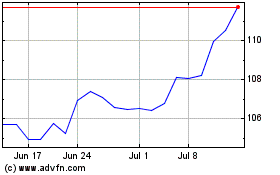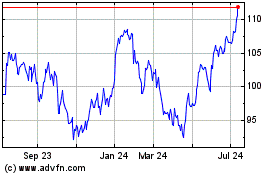Manipulating data in drug's race to market
By Denise Roland
This article is being republished as part of our daily
reproduction of WSJ.com articles that also appeared in the U.S.
print edition of The Wall Street Journal (September 14, 2019).
The startup had something incredible: a cure for babies with a
deadly neurological disease. Last year, the company was snapped up
by pharmaceutical giant Novartis AG, and by this past May, its drug
was the most expensive on the market.
In just a few years, the company, AveXis Inc., morphed from a
handful of hospital-based researchers into one of the
pharmaceutical industry's most stunning success stories.
But in the hurry to fulfill the drug's promise, AveXis
manipulated data that went into the drug's approval, Novartis and
the Food and Drug Administration now say.
And some former AveXis employees say there were other stumbling
blocks, separate from the manipulation cited by the FDA. They say
the company struggled to manage a fast ramp-up of its research and
manufacturing operations. They describe a race to develop the drug
that, at times, yielded mistakes, including misstated dosing
figures from early-stage trials of the drug.
AveXis went through a "fundamental shift in capabilities," a
Novartis spokesman said. He said it "evolved from an academic
setting to a commercial organization with leaders who had a deeper
understanding of the requirements of the pharmaceutical industry
and the FDA approval process." The spokesman said new leadership
established processes "in line with the needs for a company that
was gearing for product approval and commercialization."
In this field, there is plenty of incentive to move fast. Gene
therapy -- essentially treating a defective gene with a healthy one
-- is one of the hottest areas of pharmaceutical research, sucking
in billions of dollars of investment. Early pioneers, under
pressure from would-be patients and investors alike, are driven to
move quickly from promising research results to the manufacturing
of a safe, marketable version of their breakthroughs.
Along the way, these nimble startups can struggle to adapt to
the stringent requirements demanded by regulators and the large
pharmaceutical companies that typically snap them up. The FDA has
encouraged the acceleration, increasingly offering companies fast
track approval for promising, lifesaving drugs.
The stakes are high for Novartis, which paid $8.7 billion to buy
AveXis. The data manipulation -- which AveXis and Novartis have
acknowledged -- occurred before Novartis purchased the company.
Novartis later learned of the issue, but didn't alert the FDA while
the agency was reviewing the drug. The FDA has opened a criminal
probe into the matter, and Chief Executive Vas Narasimhan has
struggled to justify his decision to delay disclosure. Novartis has
said it wanted to conduct an internal probe before alerting the
FDA.
AveXis's drug, called Zolgensma, is one of the first
commercially available gene therapies -- and the world's most
expensive drug of any kind, at $2.1 million. Many doctors consider
it a revolutionary treatment for spinal muscular atrophy, or SMA, a
rare but particularly devastating genetic disease in babies. SMA
victims lack a gene crucial for muscle control and get
progressively weaker, struggling to move, eat or breathe.
Untreated, those with the most severe form, known as Type 1,
typically die by their second birthday. The FDA has said that the
data manipulation issue doesn't change its view that Zolgensma is
safe and effective and it has allowed the treatment to stay on the
market.
Zolgensma, delivered intravenously in a single dose, promises to
halt the disease. The drug's first clinical trial, conducted in
2014 and 2015, treated 15 babies. The first three received a lower
dose and the rest a higher dose. All 12 who received the higher
dose have passed their second birthday, with most hitting key
milestones like holding up their heads, eating by mouth and sitting
unaided. So far, there is no sign that the drug's effect decreases
over time.
Scientist Brian Kaspar and other researchers at Nationwide
Children's Hospital in Columbus, Ohio, had been experimenting with
a possible gene-therapy treatment for SMA for years. In 2013,
AveXis licensed the technology, eventually bringing on Dr. Kaspar
as scientific founder.
The successful early trial generated excitement, just as
industrywide interest in gene therapies was rising. The company
listed on Nasdaq in 2016. A year later, a video showing the
progress of some of the babies in the clinical trial triggered a
standing ovation at a packed auditorium during a prestigious
neurology conference in Boston.
Working for the Chicago-based company, as it raced to win FDA
approval and ramp up commercial-scale production, was both
exhilarating and exhausting, according to former employees.
Long hours were the norm, they said. Chief Executive Sean Nolan
and Dr. Kaspar regularly reminded employees of the importance of
the new gene therapy. "We did [in three years] something that takes
most companies 10 years to do," said one former executive.
Some employees say they spotted sloppy practices relating to the
early clinical trial. Employees in 2016 found that the calculations
done by Dr. Kaspar two years earlier were imprecise, and flagged
this to executives, according to a former employee familiar with
the matter. Those calculations overstated the dose of the gene
therapy that had been given to babies in early-stage trials by a
factor of two, this person said.
A Novartis spokesman said AveXis employees discovered the
inaccuracy after a shift to a more precise method for calculating
the dosing. AveXis corrected those calculations almost four years
after they were first carried out, according to a Novartis filing
with the FDA last year.
AveXis staff also raised issues about the role of academic labs
in the drug's development, according to former employees. In its
first clinical trial, staff from Dr. Kaspar's laboratory had
conducted blood tests -- used to track the babies' immune responses
to the treatment -- at a lab at Nationwide Children's Hospital.
That lab wasn't certified to conduct patient testing, former
employees say. AveXis later contracted an outside, certified
laboratory to conduct tests for subsequent clinical trials,
according to these former employees.
A spokesman for Novartis said it wasn't uncommon for this type
of test to be performed in an academic laboratory setting "given
the emergence of the gene-therapy field at that time." Andrew
Wachler, a health-care lawyer, said any lab that performs patient
specific tests should be certified.
The scale-up of AveXis "was in many respects quite difficult"
for Dr. Kaspar, said a former AveXis executive, adding that Dr.
Kaspar sometimes expressed frustration that as the organization
grew it became more bureaucratic and decisions took longer.
To win eventual FDA approval, the fledgling company needed to
demonstrate it could ramp up commercial production of the
treatment. AveXis launched a new manufacturing facility in
Libertyville, Ill., near Chicago. The plant needed to run dozens of
successive batches of the gene therapy, and provide meticulous
documentation.
It was a round-the-clock operation, according to former
employees. It wasn't unusual for quality-assurance employees to be
hauled out of bed in the middle of the night if a potential issue
had arisen with a batch, according to former employees.
A Novartis spokesman said AveXis had a sense of urgency to get
the product to children in need. He said that many biotech
manufacturing plants work round-the-clock.
To win over the FDA, AveXis had to show the gene therapy made in
the company's new factory in Libertyville matched the treatment
made and tested at the hospital. To do so, scientists compared how
mice with SMA fared with the Libertyville product, versus how they
did on the original gene therapy from the hospital.
Those comparisons were done at an AveXis facility in San Diego.
They were later submitted as part of the drug's approval
application. The FDA signed off on them as satisfactory, according
to FDA filings.
But while the FDA was assessing the application, an AveXis
whistleblower reported to the AveXis leadership that there was a
problem with some of that data. The issue was escalated to
Novartis's Chief Executive Vas Narasimhan in early May, but the
company didn't alert the FDA until late June, about a month after
the drug had won FDA approval and gone on sale.
After Novartis reported the issue, the FDA descended on the San
Diego facility where the tests were conducted. Inspectors found a
host of problems, according to an FDA report of the inspection.
Staff didn't thoroughly review data discrepancies, for instance,
and didn't keep satisfactory records. FDA inspectors found a log
from August 2018 describing how the lifespans of mice used to test
the potency of the drug were recorded differently in different
places, according to their report. In the most extreme case, the
difference was 19 days. Inspectors went on to say, in the report,
that they saw no evidence staff, made aware of the error by
quality-control inspectors, made efforts to figure out what
happened. Novartis said it has responded to the FDA's concerns.
Novartis replaced Dr. Kaspar in the wake of the
data-manipulation issue. Dr. Kaspar has denied wrongdoing in
relation to the data manipulation, but didn't respond to requests
for comment for this article.
The manipulation "is the antithesis of the culture we built,"
said a former AveXis executive, who said the vast majority of
AveXis employees "were exceptional and did things with great
integrity."
Although the FDA has allowed the drug to stay on the market,
saying the data manipulation doesn't affect its efficacy or safety,
the episode has nonetheless sowed worry among parents of babies
with SMA. Cure SMA, a charity that raises money for research into
SMA, quickly arranged a webinar with representatives from AveXis
and the FDA to address concerns after the manipulation disclosures.
One participant asked whether Zolgensma was safe, and if the FDA
had been "duped" into approving it.
The FDA official on the call said the agency would have taken
the treatment off the shelf if it had any doubts. Dozens of babies
have been successfully treated with the drug. In some cases, babies
who once would have struggled to sit up unassisted are now
walking.
Eleven-month-old Isaac Olthoff was scheduled to receive
Zolgensma when the data manipulation came to light. His mother,
Michelle, said the announcement gave her pause, but she was soon
reassured by the FDA's decision to keep the treatment on the
market. Isaac received Zolgensma a week later.
--Joseph Walker contributed to this article.
Write to Denise Roland at Denise.Roland@wsj.com
(END) Dow Jones Newswires
September 14, 2019 02:47 ET (06:47 GMT)
Copyright (c) 2019 Dow Jones & Company, Inc.
Novartis (NYSE:NVS)
Historical Stock Chart
From Mar 2024 to Apr 2024

Novartis (NYSE:NVS)
Historical Stock Chart
From Apr 2023 to Apr 2024
